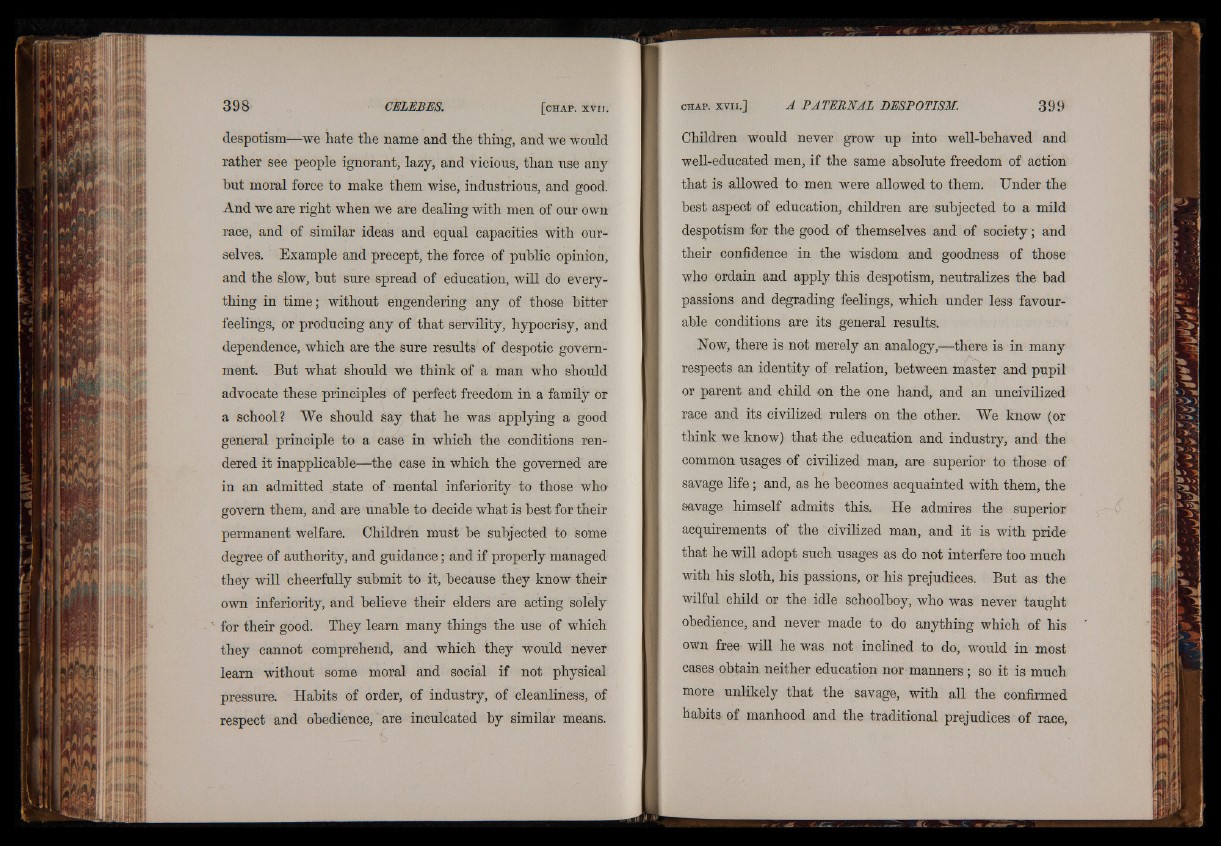
despotism—we hate the name and the thing, and we wonld
rather see people ignorant, lazy, and vicious, than nse any
hut moral force to make them wise, industrious, and good.
And we are right when we are dealing with men of our own
race, and of similar ideas and equal capacities with ourselves.
Example and precept, the force of public opinion,
and the slow, hut sure spread of education, will do everything
in time; without engendering any of those hitter
feelings, or producing any of that servility, hypocrisy, and
dependence, which are the sure results of despotic government.
But what should we think of a man who should
advocate these principles of perfect freedom in a family or
a school? We should say that he was applying a good
general principle to a case in which the conditions rendered
it inapplicable—the case in which the governed are
in an admitted state of mental inferiority to those who
govern them, and are unable to decide what is best for their
permanent welfare. Children must be subjected to some
degree of authority, and guidance; and if properly managed
they will cheerfully submit to it, because they know their
own inferiority, and believe their elders are acting solely
for their good. They learn many things the use of which
they cannot comprehend, and which they would never
learn without some moral and social if not physical
pressure. Habits of order, of industry, of cleanliness, of
respect and obedience, are inculcated by similar means.
Children would never grow up into well-behaved and
well-educated men, if the same absolute freedom of action
that is allowed to men were allowed to them. Under the
best aspect of education, children are subjected to a mild
despotism for the good of themselves and of society; and
their confidence in the wisdom and goodness of those
who ordain and apply this despotism, neutralizes the bad
passions and degrading feelings, which under less favourable
conditions are its general results.
Now, there is not merely an analogy,—there is in many
respects an identity of relation, between master and pupil
or parent and child on the one hand, and an uncivilized
race and its civilized rulers on the other. We know (or
think we know) that the education and industry, and the
common usages of civilized man, are superior to those of
savage life; and, as he becomes acquainted with them, the
savage himself admits this, He admires the superior
acquirements of the civilized man, and it is with pride
that he will adopt such usages as do not interfere too much
with his sloth, his passions, or his prejudices. But as the
wilful child or the idle schoolboy, who was never taught
obedience, and never made to do anything which of his
own free will he was not inclined to do, would in most
cases obtain neither education nor manners ; so it is much
more unlikely that the savage, with all the confirmed
habits of manhood and the traditional prejudices of race,